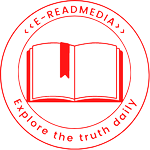
Your workplace isn’t just a physical space where you spend your weekdays. It’s an ecosystem of people, tasks, and dynamics that can either invigorate your spirit or leave you feeling drained. The secret to thriving in your professional life lies in understanding how well your soft skills align with your work environment. Are you in the right place? Let’s find out.
Defining Soft Skills
Before we dive into the nuances of work environments, let’s grasp the essence of soft skills. These are the interpersonal attributes that shape your effectiveness in the workplace. They stand apart from technical know-how and encompass qualities like communication, empathy, adaptability, and teamwork. In an era where machines can replicate technical tasks, these “human” skills are becoming increasingly precious.
LinkedIn data from 2022 underscores the importance of soft skills, with 45% of LinkedIn Premium jobs emphasizing attributes such as effective communication. While hard skills might capture a recruiter’s attention, it’s often soft skills that secure the job. Take, for instance, the significance of communication skills in technical roles. Without effective communication, the intended message can easily become lost or misconstrued.
The Ideal Soft Skills for Different Work Environments
Now, let’s explore how soft skills harmonize with six distinct work environments, as proposed by psychologist John Holland.
- Social Work Environment: This realm thrives on interpersonal interactions. Strong communication skills, empathy, patience, and conflict resolution are key. Teachers, therapists, and nurses excel here.
- Enterprising Work Environment: Enterprising jobs involve starting and executing projects with a competitive edge. Decision-making, negotiation, strategic planning, and leadership are prized skills. Think salespeople, managers, and entrepreneurs.
- Artistic Work Environment: Creativity reigns supreme. Jobs in this category demand intuition, imagination, originality, and a keen sense of aesthetics. Graphic designers, book editors, and art teachers thrive here.
- Investigative Work Environment: Analytical thinkers who relish intellectual challenges excel here. Problem-solving, analytical reasoning, logical thinking, and effective communication are vital. You’ll find scientists, engineers, and detectives in this domain.
- Conventional Work Environment: These settings are characterized by routine, tradition, and well-defined rules. Strong organizational skills, time management, attention to detail, and practicality are essential. If you love structured workplaces, this might be your niche.
- Realistic Work Environment: Physical manipulation of objects and tools is central to this environment. Soft skills like situational awareness, attention to detail, teamwork, and problem-solving shine. Mechanics, chefs, and construction workers are prime examples.
Developing and Enhancing Your Soft Skills
To ensure your soft skills are a perfect match for your chosen work environment, consider these strategies:
- Set SMART Goals: Identify the soft skills you wish to improve and create specific, measurable, achievable, relevant, and time-bound goals. For example, aim to strengthen your teamwork skills by participating in group projects.
- Seek Feedback: Regular feedback from colleagues, managers, or mentors can reveal your strengths and areas for improvement. It can also uncover communication or behavioral blind spots you may not be aware of.
- Cultivate a Growth Mindset: Embrace the belief that skills can be developed with effort and persistence. Change your inner dialogue from self-doubt to self-improvement. Instead of saying, “I can’t speak confidently on stage,” say, “I’m working on improving my stage presence and presentation skills.”
Tests to Identify Your Ideal Work Environment
Personality tests like the Myers-Briggs Type Indicator (MBTI) and the Holland Code (RIASEC) can provide profound insights into your strengths, preferences, and potential work environments. The MBTI categorizes individuals into 16 personality types, offering hints about suitable job settings. Meanwhile, the RIASEC test customizes work environments based on your soft skills and personality traits.
Read Also: Reddit New Cash-for-Posts Scheme Sparks Debate
However, remember that these tests are tools, not destiny. They help you pave your path but don’t define it. Listen to your heart as much as you listen to the data. Your soft skills are your compass, guiding you towards a workplace where you can thrive.








